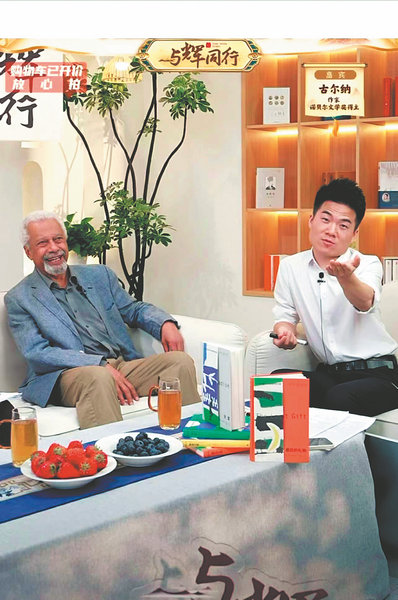

In Beijing, Gurnah talked about the fact that his mother tongue is Swahili, and he was born to a Muslim family, and recalled the small town he grew up, where different languages can be heard, multiple religions are practiced, and celebrations, weddings and funerals are held in different forms.
"I was living in a place where it was almost inevitable that you have to be aware of difference — different cultures and different ways of doing things — not only aware of but tolerant to that. People were used to that," he says.
He adds that he later experienced and witnessed how increasing numbers of immigrants have changed the once predominantly monocultural British society and won acknowledgment by struggling to retain aspects of their own cultures.
The acknowledgment never comes easily, he says.
During his talk, writer Ge Fei marveled at the broad scope of time and space in Gurnah's work, as well as the breadth of social life in them.
"A world map pops into my mind when I read Gurnah's novels," he says.
Mo Yan, also a Nobel literature laureate, said in his dialogue with Gurnah on March 11 in Beijing, that it's likely that a novelist's work constitutes his or her autobiography. Mo Yan took Gurnah's book Desertion as an example to analyze a novelist's talent for "going through a narrow door into the wider world".
Mao Jian, a professor at the School of International Chinese Studies, East China Normal University in Shanghai, listed several words of high frequency in Gurnah's writing: "Pain" alone appears 27 times in By the Sea; "suffer", "distress", "torment" and "agony "appear 70 times.